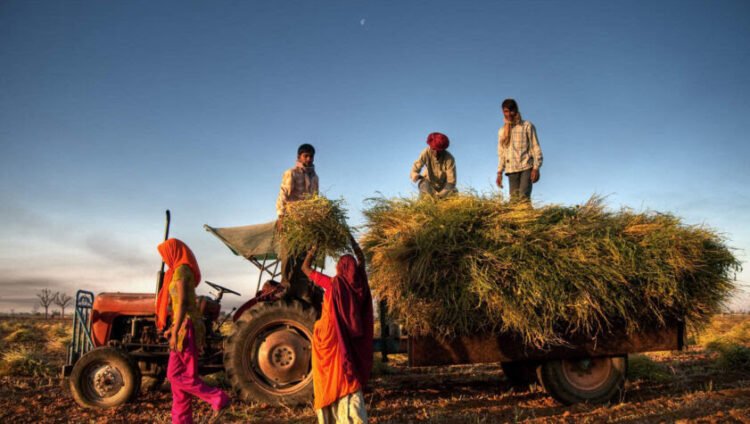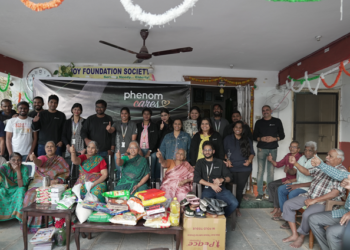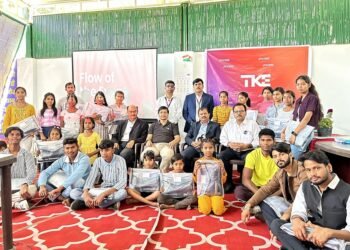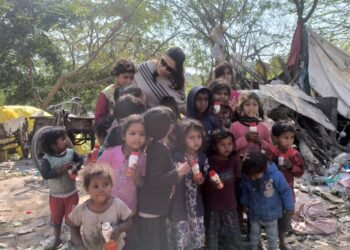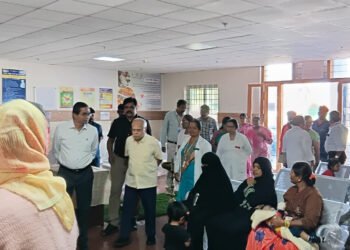Synopsis
Cargill and TechnoServe launch ‘Srishti’, a four-year program set to transform 25,000 acres of maize farms in Karnataka into regenerative agriculture models, empowering 10,000 households and tackling water conservation, financial access, and market linkage challenges.
DELHI and BANGALORE: Cargill and TechnoServe announced a groundbreaking collaboration, ‘Srishti’, to benefit 10,000 maize farming households in Davanagere, Karnataka, by bringing 25,000 acres of farmland under regenerative and sustainable agricultural practices.
The four-year program will empower farming households with the knowledge and tools for sustainable farming, focusing on soil health, carbon sequestration, water quality and usage. The program also aims to address challenges such as water conservation, financial access, and market linkage improvements. This collaboration aligns with Cargill’s vision to mainstream regenerative agriculture across its global supply chains.
Aiming for Greener Pastures
The initiative aims to bolster soil health, sequester carbon, enhance water quality, and optimize its usage, consequently increasing crop productivity, improving farmers’ livelihoods, and fortifying the sustainability of food supply chains. By adopting regenerative agriculture practices, the program will contribute to Cargill’s vision of mainstreaming regenerative agriculture across its global supply chains.
Announced in the presence of Ronald P Verdnok, Minister Counsel, Office of Agricultural Affairs, US Embassy, this initiative aligns with the growing commercial ties and strategic partnership between the US and India.
During the announcement, Verdnok commented, “Cargill’s regenerative farming initiative is a fitting example of the strengthening partnership between our two countries.”
Empowering Farmers and Enhancing Sustainable Development
The collaboration will span four years, focusing on enabling farmers with knowledge and tools for regenerative farming practices through comprehensive training and sustained support. The program will also address critical challenges, including water conservation, finance access, and market linkage improvements.
Simon George, President of Cargill in India, highlighted the transformative potential of the partnership, “Leveraging our deep experience in the food and agriculture domain, coupled with TechnoServe’s success in sustainable development programs, this partnership will foster transformation in the agricultural landscape in India and bring positive environmental outcomes.”
Punit Gupta, Country Director, TechnoServe India, echoed George’s sentiment and added, “Over the next four years, the program will support 10,000 farming households in building climate-resilient livelihoods by enabling the adoption of regenerative agriculture and water conservation practices.”
The Regenerative Roadmap
The ‘Srishti’ program will leverage traditional and modern agricultural practices, focusing on:
Helping farmers adopt regenerative practices like bund plantation, cover cropping, and low tillage.
Expanding water harvesting capacity sustainably through farm ponds and borewell recharge structures.
Promoting sustainable use of community land to ensure afforestation of degraded pastureland.
Collaborating with Farmer Producer Organisations (FPOs) for farmer awareness, engagement, and resource accessibility.
Farmers will also be trained on good agricultural practices to drive positive environmental outcomes and build a more resilient future.
Key Highlights of the ‘Srishti’ Initiative:
| Key Component | Impact |
|---|---|
| Regenerative Practices | Increased soil health, carbon sequestration, and water quality |
| Training Programs | Empowerment of 10,000 farming households with regenerative farming techniques |
| Water Conservation | Expansion of water harvesting capacity through sustainable means |
| Market Linkages | Improved access to resources and market for farmers via collaborations with FPOs |
| Women Empowerment | Economic upliftment of women from farming households |
| Farm Land Coverage | Transformation of 25,000 acres of farmland under regenerative agriculture |

